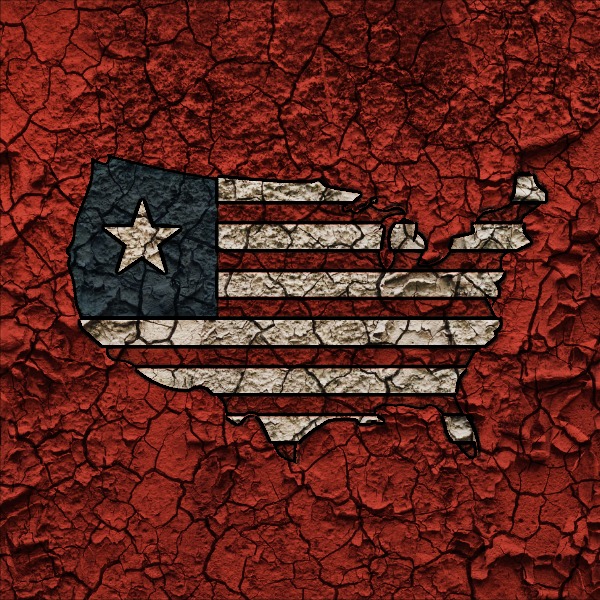The morning after
we emerge scorched earth
chap-lipped rye ringing
in our ears a four year
dissonance
we do not understand
our brows furrowed
in disappointment
we gather
share parka
share hijab
against cold new wind
pass the conch
our mouths agape
a joint or three
between fingers
raised in mock peace
we yell a chasm
in unison hoping
it will erase the night
but it comes anyway
so we learn to operate
without light or air
hold our gasps
we take our spades
and dig
and dig
in threes
we replace every crater
with a spruce
a woman is not asked
to mend
every hopelessness
but she does anyway
crouched against the fire
our hands create
a pantomime on cave wall
shadows cast
by Golden Idols
they carted in
from the heartland—
whose heart
we wonder
whose land
whose limber limbic
hatred flows
through its rivers
poisoned caustic red
nerve pinch
vein bulge
eye twitch
anger so thorough
your father would be ashamed
how do we drink
from the same stream
as a demon?
tomorrow we will awake
the apocalypse will fade
a preexisting condition
we cannot shake
so we learn to watch
for boulders
and tumbling
and unkind words
and open carry
venom
from pale strangers
whose only fear
is us
so we huddle together
and stare at them
while they rattle together
and stare at us
from the empty altar
they’ve built
tomorrow we will empty
ourselves in a circle
the sculptors
the artists
the poets
the proud kooks
gather our morsels
under the rising
Yellow Star
pins in our lapels
drops of water
in a quiet undertow
and resist
and resist
****
Artist’s Statement
We feel broken.
We feel broken.
We feel like records someone forgot to flip, playing that raspy melody we’re not even sure means anything anymore. The others aren’t listening.
We feel impotent: unable to fix ourselves, to protect the vulnerable, to grieve with any meaning. Still. After the apocalypse, we must awaken. While we draw breath we must rail and resist and pour ourselves into creative endeavors because the river of knowledge will never stop flowing, not until the last human draws her breath, not until thought itself lays discarded on the highway. What we pour into the river is not for us, but for those who come after to sip at its shores before returning with a brimming bucket like we have.
Despair, but not for too long. Grieve, but be aware. Come back; Trump cannot halt us, though he might censor our words. Knit a blanket. Cook a hearty meal. Be kind to a fault.
And fight like hell.
 Alex Simand holds an MFA from Antioch University Los Angeles. He writes fiction, creative nonfiction, and poetry. His work has appeared in Red Fez, Mudseason Review, Five2One Magazine, Angel City Review, Drunk Monkeys, and others. Alex is the former Blog Editor for Lunch Ticket and past Editor of Creative Nonfiction and Diana Woods Memorial Prize. Find him online at www.alexsimand.com or on Twitter at @AlexSimand.
Alex Simand holds an MFA from Antioch University Los Angeles. He writes fiction, creative nonfiction, and poetry. His work has appeared in Red Fez, Mudseason Review, Five2One Magazine, Angel City Review, Drunk Monkeys, and others. Alex is the former Blog Editor for Lunch Ticket and past Editor of Creative Nonfiction and Diana Woods Memorial Prize. Find him online at www.alexsimand.com or on Twitter at @AlexSimand.
a millennial prayer
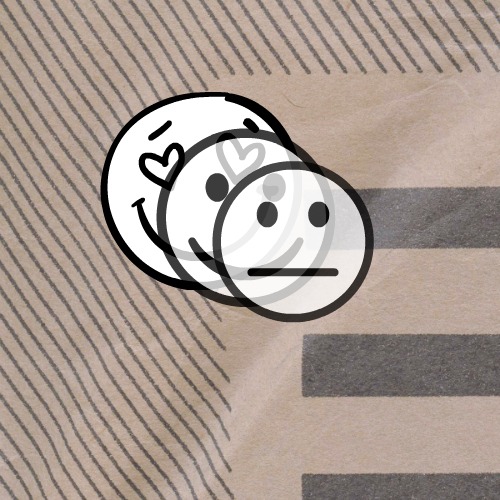
may our grams be insta-liked,
our fingers knuckle crack scrolling
scrolling our eyes seeing
everything and nothing, may
our texts be addressed promptly,
no three mean dots stuck between
I love you (or whatever)
and
I’ve already forgotten
where your birthmarks live, may
we find purpose
on a park bench
overlooking a city
we’ve barely seen
but someone told us
we should crowd like crickets, may
our headphones remain
untangled, looped through
our shirts or bras
a steady beat
a steady beat
a steady beat in our ears
the cadence for a march
we were wound up for
at birth by our mothers, may
we be ever grateful
for poetry that surrounds us,
like ocean—live open & #nofilter
may we learn
to drink salt water without
gasping and not resent laughter
from women on trains, may
our tweets be clever, may
our blogs be read, may
our love for social justice
be a loaf of bread, may
we lose our gluten allergies, may
we never drive cars again
and wear those shoes that make us
look like Roman prefects
and discover the perfect hashtag
(and use it only once), may
we discover radical self love
is the circus of our generation
without using the words
radical, self, or love, may
we find slow in our motion,
yearning for open windows we scrape
the frost off with our fingernails, may
we discover colors without name, may
we pause to have original thought
(just one)
may we avoid all manner
of what Monopoly taught us was evil, may
we grow bloated and happy
just like our parents
but without falling asleep.
***
Artist Statement:
What does it even mean to be a millennial? I think we’re still trying to figure out. In the meantime, we seem to have no end to the distractions that perpetually clutter our psyches. Maybe that’s why we’re still casting about. We care about things, of course. Too many things. Social justice. Cat videos. Literature, sometimes. Community, or whatever we think community is supposed to be. Nothing is neat. Nothing is obvious. And maybe that’s okay. I hope that’s okay. I hope we’ll be okay. Amen.
 Alex Simand holds an MFA from Antioch University Los Angeles. He writes fiction, creative nonfiction, and poetry. His work has appeared in Red Fez, Mudseason Review, Five2One Magazine, Angel City Review, Drunk Monkeys, and others. Alex is the former Blog Editor for Lunch Ticket and past Editor of Creative Nonfiction and Diana Woods Memorial Prize. Find him online at www.alexsimand.com or on Twitter at @AlexSimand.
Alex Simand holds an MFA from Antioch University Los Angeles. He writes fiction, creative nonfiction, and poetry. His work has appeared in Red Fez, Mudseason Review, Five2One Magazine, Angel City Review, Drunk Monkeys, and others. Alex is the former Blog Editor for Lunch Ticket and past Editor of Creative Nonfiction and Diana Woods Memorial Prize. Find him online at www.alexsimand.com or on Twitter at @AlexSimand.
Focusing on Writing
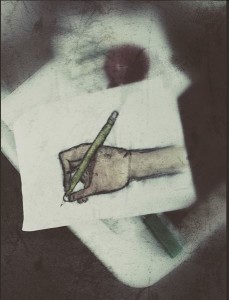
What I’ve learned about writing productively is it all comes down to focusing on my goals, and writers can’t possibly do that effectively without actually being aware of what their goals actually are. Think of it like trying to stuff an arrow down the barrel of a gun and then trying to shoot at a target that’s not just moving but camouflaged. And invisible. With feathers.
I spent about 6 years working on three different novels that never went anywhere, largely because I wasn’t focusing on what it takes to get a novel published. I wasn’t making regular efforts to revise, edit, sift through a list of agents who represent what I write, or build an effective query. Instead, I was making regular efforts to hit about three blog posts a week, participate in a weekly online flash fiction group, and stay up to date with regular blog/comment debates on topics including current film, reincarnation, life after death, and how strongly I believe that The Great Gatsby is overrated.
Writing, for me, largely comes down to immediate versus delayed gratification. Do I want to make it from 4,000 to 5,000 blog followers or 100 likes on my next post? Do I want to stay current with political debates with idiots from my Class of ’80 in hopes I can convince them which way to lean in November? Do I want to spend an hour carving out the perfect 100 words for a picture prompt? Do I want the accolades of how perfectly the dialogue in my 100 words showed fear in the hearts of villagers who find a blood-stained canoe on an empty beach?
Or, do I want my daughter, who works at Barnes and Noble, to tell me how a customer brought a book to the register, handed it to her, and she said, “Oh, my father wrote that”?
For the past four weeks I’ve been revising one novel while an agent crawls through a different one in order to give me some valuable feedback in order to improve the novel she accepted. Eight weeks ago she said she’d get back to me in six weeks, which is why I’ve been on edge for the past two weeks. I haven’t written a blog post in two months, and only today did I take another shot at flash fiction, which I hadn’t done in over a year. I haven’t had over ten views a day on my blog this past year, even though a few years ago I averaged ten views an hour and once had over 700 in one day.
But if I’m going to finally get a novel published, then this is exactly where I want to be.
BTW – the Barnes and Noble thing actually happened.
–

After spending over 25 years teaching literature and writing, Rich Voza now writes for himself. Publishing credits include one novel and 13 short stories published through Whiskey Creek Press. Two novels are in revision and one is somewhere on an agent’s desk. On a good day, he’s listening to baseball on the radio while emptying a cooler of beer on the beach. On a bad day, his kids are bugging him to pick up sushi.
The Gold Spike
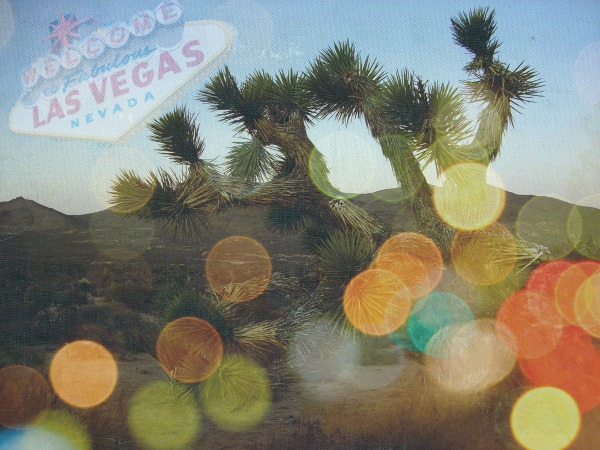
I lived in Las Vegas from summer 1991 until September 1992. My first husband was Air Force, stationed at Nellis. We got married my senior year of college (the first gulf war helped me into a bad decision) and I moved out west after I graduated. We lived in an apartment complex on N. Nellis Blvd. It had grass (!) and backed up to a wash. Sometimes I’d see a roadrunner in our parking lot. Dust devils, tumbleweeds, joshua trees… for a girl raised on the shores of the Great Lakes it was quite an adjustment. It was so beautiful and barren. I’d go down to the Mirage to stand by the volcano just to feel water in the air. Then when the rainy season came the wash would fill in a matter of minutes and the desert got this sheen of flowers. Lovely. I remember finding my bearings by which mountain peaks I could see and pulling over to watch planes circle into Nellis. I saw a B2 bomber once. Scary M-F-er, that one. And the heat. The breeze like a hair dryer. I became nocturnal. What a crazy chapter in my life! I’m glad for it, though. The desert really is gorgeous, and the mountains, too.
Although circus clowns
startle me, here even sand
blooms like confetti.
– prose by Jennifer Tappenden & poetry by Heather Lang
###
Poet’s Note:
Lately, my writing has been inspired by a sense of place, like downtown Las Vegas, and also by what I’ve been reading while drinking iced coffee at PublicUs, a local indie coffeehouse. I’ve just revisited Matsuo Bashō’s (1644-1694) The Narrow Road to the Deep North as translated from the Japanese by Nobuyuki Yuasa. This work is a travel diary featuring haibun: prose laced with haiku.
Although Bashō often wrote both the prose and the poetry himself, I found myself inspired to respond to my dear friend Jennifer Tappenden’s casual yet beautiful letter about her own time in Las Vegas. When she emailed me, Jen had no idea that I might want to use her words for a more public project. At that time, neither did I. The prose is hers exactly as it arrived to me in an email, and I wrote my response, the haiku, after an unforgettable night at the Gold Spike in downtown Las Vegas. This collaboration feels, to me, fitting. Although I moved to Nevada barely one year ago, this place has brought me more friendship than any other.
Bios:
 Heather Lang is a poet, literary critic, and adjunct professor. Nevada’s NPR member radio station has twice interviewed her this year about her writing, and in June she served as the Las Vegas Poets Organization’s featured poet. Her writing process is currently on exhibit at the Nevada Humanities Program Gallery. Heather’s poetry and prose have been published by or are forthcoming with HOOT, The Normal School, Paper Darts, Pleiades, and Whiskey Island, among others. Heather holds an MFA from Fairleigh Dickinson University, and she serves as an editor with The Literary Review.
Heather Lang is a poet, literary critic, and adjunct professor. Nevada’s NPR member radio station has twice interviewed her this year about her writing, and in June she served as the Las Vegas Poets Organization’s featured poet. Her writing process is currently on exhibit at the Nevada Humanities Program Gallery. Heather’s poetry and prose have been published by or are forthcoming with HOOT, The Normal School, Paper Darts, Pleiades, and Whiskey Island, among others. Heather holds an MFA from Fairleigh Dickinson University, and she serves as an editor with The Literary Review.
Jennifer Tappenden is the founding editor of Architrave Press. She earned an MFA in poetry from the University of Missouri – St. Louis where she also served as the university’s first Poet Laureate. Her poems have appeared in The Baltimore Review, Flyway, Compose and elsewhere. Jen is poetry editor for december magazine, an organizer of both the St. Louis Small Press Expo and UMSL’s Natural Bridge Debut Writers Series. Her chapbook, Independent City, is forthcoming from Wells College Press where she will also be a visiting writer to coincide with its release in the Fall of 2016.
Old Donald Had A Farm
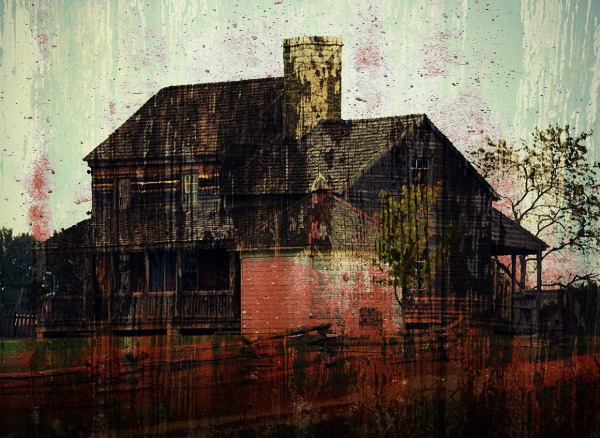 He ate all the pigs first because the Old Testament said he couldn’t. Then he ate the horses, because the Dutch consider it delicacy and he dislikes animals who appear to work harder than him. Eh oh, eh oh, ee. He rounded up the rest in the barn. The heifer was worried her milk would sour when he spoke, so she stood as far from the hay bale podium as possible, tapping her hooves against the flimsy walls. Trump said he wanted to build a better wall, barbed wire and concrete; this is a farm and nobody wants in, explained the goose, so Trump picked him up and threw him in the air. Go back to Canada, he yelled. The goose, over her shoulder, replied, I’m not that kind of Goose, but Trump was already stamping his foot and making animal sounds with his mouth. The best animal sounds. Eh oh, eh oh, ee. A storm murmured outside, softly at first, and then coughing cancer cadence. Water dripped into buckets on the dirt floor. There was a knock on the door. The goats, the gatekeepers, moved to open it up. Trump said, No keep it closed. We have no way of knowing who is out there. The goats brayed. They knew it was the farmer’s son next door who sometimes comes to play on the rusted tractor. They must endure an extensive wetting process first, said Trump. He was wearing leather shoes imported from Peru. The llamas were worried, even though they were born on the farm. Nobody knows where Trump came from. Eh oh, eh oh, ee.
He ate all the pigs first because the Old Testament said he couldn’t. Then he ate the horses, because the Dutch consider it delicacy and he dislikes animals who appear to work harder than him. Eh oh, eh oh, ee. He rounded up the rest in the barn. The heifer was worried her milk would sour when he spoke, so she stood as far from the hay bale podium as possible, tapping her hooves against the flimsy walls. Trump said he wanted to build a better wall, barbed wire and concrete; this is a farm and nobody wants in, explained the goose, so Trump picked him up and threw him in the air. Go back to Canada, he yelled. The goose, over her shoulder, replied, I’m not that kind of Goose, but Trump was already stamping his foot and making animal sounds with his mouth. The best animal sounds. Eh oh, eh oh, ee. A storm murmured outside, softly at first, and then coughing cancer cadence. Water dripped into buckets on the dirt floor. There was a knock on the door. The goats, the gatekeepers, moved to open it up. Trump said, No keep it closed. We have no way of knowing who is out there. The goats brayed. They knew it was the farmer’s son next door who sometimes comes to play on the rusted tractor. They must endure an extensive wetting process first, said Trump. He was wearing leather shoes imported from Peru. The llamas were worried, even though they were born on the farm. Nobody knows where Trump came from. Eh oh, eh oh, ee.
Artist Statement
The political world is absurd right now. Truth has turned into non-Newtonian fluid—solid when settling into the biased brain, and liquid when confronted with repudiating evidence. There is no better case study in the mutability of truth right now than the presidential campaign of Donald Trump, who has somehow, amid his absurdity (or perhaps because of it) amassed a following none but the most cynical would have predicted a year ago. He is profoundly easy to make fun of—the words that leave his mouth are, without exception, nonsensical. And yet he doesn’t care, and neither do his supporters. So he prattles on. Muslims are terrorists. Mexicans are rapists. He could state that Earth is flat and there are lizard people living at its center and none of this would matter. Except it does matter, because when truth degrades, so does the basis of reasoned argument. Feeling becomes a good enough benchmark for policy. He seems to act more like a petulant child than a politician—a narcissistic one to boot. “Old Donald Had A Farm” is my attempt to confront his absurdity—with my own absurdity.
Parables are powerful; they take the recognizable and turn it on its head. Often this is uncomfortable. Anne Sexton, in her book of poems Transformations, took fairy tales and twisted them into not-quite familiar forms, to the effect of exposing the misogyny engendered by the original tales. It is the diffraction of the comfortable that carries power. In “Old Donald Had A Farm,” I take a comforting ditty about the sounds animals make and turn it into a cautionary tale. There is a meeting. There is a rally. The animals are confused, because the inmate has escaped the asylum and set up shop at their farm. Sometimes the only way to confront absurdity is with your own absurdity. It also helps keep you sane. And hopefully it makes you laugh, too.
 Alex Simand holds an MFA from Antioch University Los Angeles. He writes fiction, creative nonfiction, and poetry. His work has appeared in Red Fez, Mudseason Review, Five2One Magazine, Angel City Review, Drunk Monkeys, and others. Alex is the former Blog Editor for Lunch Ticket and past Editor of Creative Nonfiction and Diana Woods Memorial Prize. Find him online at www.alexsimand.com or on Twitter at @AlexSimand.
Alex Simand holds an MFA from Antioch University Los Angeles. He writes fiction, creative nonfiction, and poetry. His work has appeared in Red Fez, Mudseason Review, Five2One Magazine, Angel City Review, Drunk Monkeys, and others. Alex is the former Blog Editor for Lunch Ticket and past Editor of Creative Nonfiction and Diana Woods Memorial Prize. Find him online at www.alexsimand.com or on Twitter at @AlexSimand.
